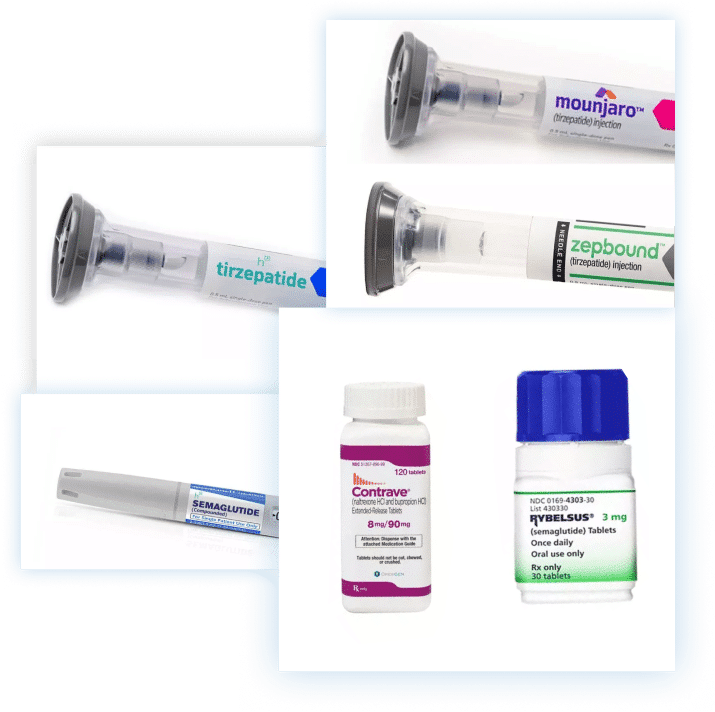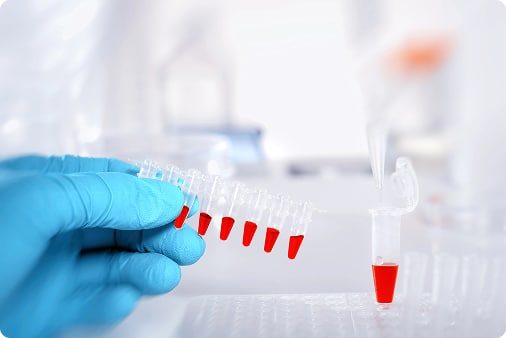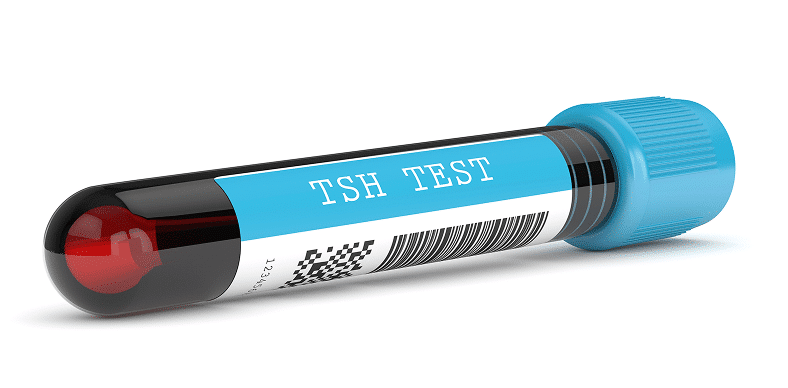Thyroglobulin Antibodies (TgAb) measures whether your immune system is creating antibodies that attack your thyroid gland, which could indicate an autoimmune thyroid condition.


Create an account, provide basic information, and schedule your online consultation with a licensed holistic health doctor.

Use our secure telemedicine video platform to discuss your health concerns from the comfort of your home.

After your consultation, your doctor will create a personalized treatment plan based on your needs.







Our comprehensive panel ensures you get detailed insights while saving you time.

Our licensed doctors will authorize your tests in the comfort of your home. Our secure platform offers thousands of testing facilities for any need: hormone testing, organ function markers, and more.

The 15-minute blood draw covers all markers from basic wellness to comprehensive hormone panels, done by certified phlebotomists. Choose your laboratory location and have your blood tested.

Your dashboard shows real-time metabolic results with key detailed indicators of each marker, from lipase levels to thyroid function. Compare results over time and receive actionable insights within 24-72 hours after testing.
Transform your wellness journey with precise biomarker tracking and comprehensive blood testing analysis. Stay informed about your health metrics with regular monitoring and professional insights.

Thyroglobulin Antibodies (TgAb) measures whether your immune system is creating antibodies that attack your thyroid gland, which could indicate an autoimmune thyroid condition.
The Cholesterol/HDL Ratio compares your total cholesterol to your good cholesterol levels, providing a simple way to assess your heart disease risk.
HDL Cholesterol is known as “good” cholesterol because it helps remove harmful cholesterol from your bloodstream and carries it back to your liver for processing.
HDL Large particles are the most effective form of good cholesterol, as they’re best at removing dangerous cholesterol from your arteries.
High-Sensitivity C-Reactive Protein (hs-CRP) reveals inflammation levels in your blood vessels, which can predict your risk of heart disease before other symptoms appear.
LDL Cholesterol is often called “bad” cholesterol because it can build up in your artery walls and increase your risk of heart disease.
LDL Medium particles are one type of bad cholesterol that can contribute to plaque buildup in your arteries.
LDL Particle Number counts how many bad cholesterol carriers are in your blood, which gives a more accurate picture of heart disease risk than just measuring LDL levels.
LDL Pattern shows whether your bad cholesterol particles are mostly large (Pattern A, less risky) or small (Pattern B, more dangerous).
LDL Peak Size measures the most common size of your bad cholesterol particles, where larger sizes are generally less harmful to your arteries.
LDL Small particles are the most dangerous type of bad cholesterol because they can easily penetrate artery walls and cause buildup.
Lipoprotein (a) is a genetic marker that can indicate increased heart disease risk even when other cholesterol levels appear normal.
Non-HDL Cholesterol combines all types of cholesterol that can contribute to heart disease, giving a broader view of your cardiovascular risk.
Total Cholesterol measures all cholesterol types in your blood, though the balance between good and bad types matters more than the total amount.
Triglycerides indicate how much fat is stored in your blood from excess calories, with high levels suggesting increased risk of heart disease.
Measures if your immune system is attacking thyroglobulin, a key thyroid protein that makes essential hormones for metabolism and growth.
Tests the hormone that controls your thyroid gland’s activity, helping diagnose conditions like hypothyroidism and Graves’ disease.
Checks levels of a major thyroid hormone that helps regulate your metabolism, heart function, brain development, and muscle control.
Measures your most powerful thyroid hormone, which regulates vital functions like body temperature, heart rate, metabolism, and fertility.
Screens blood for early cancer signals across more than 50 types of cancer, detecting markers as early as stage one. This comprehensive test helps identify both common and rare cancers before typical symptoms appear.
Types of cancer tested: Adrenal Cortical Carcinoma, Ampulla of Vater, Anus, Appendix, Carcinoma, Bile Ducts, Bladder, Urinary, Bone, Breast, Cervix, Colon and Rectum, Esophagus and Esophagogastric Junction, Gallbladder, Gastrointestinal Stromal Tumor, Gestational Trophoblastic Neoplasms, Kidney, Larynx, Leukemia, Liver, Lung, Lymphoma (Hodgkin and Non-Hodgkin), Melanoma of the Skin, Merkel Cell Carcinoma, Mesothelioma, Nasal Cavity and Paranasal Sinuses, Nasopharynx, Neuroendocrine Tumors, Oral Cavity, Oropharynx, Ovary, Fallopian Tube and Primary Peritoneum, Pancreas, Penis, Plasma Cell Myeloma and Plasma Cell Disorders, Prostate, Small Intestine, Soft Tissue Sarcoma, Stomach, Testis, Ureter, Renal Pelvis, Uterus, Vagina, and Vulva.
Measures the amount of unbound prostate proteins in blood to help evaluate prostate health and monitor known conditions. This marker helps determine if elevated levels are due to cancer or benign conditions.
Calculates the ratio of free to total prostate proteins to help determine cancer risk and guide biopsy decisions. This percentage helps doctors differentiate between benign conditions and potential cancer.
Evaluates overall prostate proteins to monitor health and screen for potential issues. This test helps detect abnormalities but requires additional context from other markers for proper interpretation.
Analyzes how antibodies bind to cell nuclei, helping identify specific types of autoimmune conditions. Different patterns can indicate various disorders like lupus or scleroderma.
Checks for antibodies that mistakenly target your body’s own healthy cell nuclei. This initial screening test helps detect potential autoimmune disorders requiring further investigation.
Measures the concentration of antinuclear antibodies to determine autoimmune response severity. Higher concentrations often indicate more active autoimmune conditions.
Tests for immune proteins that can signal rheumatoid arthritis and other autoimmune conditions. Higher levels may indicate active inflammation or developing autoimmune disorders.
Detects immune reactions to modified gluten proteins to help diagnose celiac disease. This test is particularly sensitive for identifying gluten sensitivity and monitoring treatment response. *This add-on test
Identifies immune response to a specific enzyme that’s targeted in celiac disease. This highly specific test helps confirm celiac disease diagnosis and monitor intestinal healing. *This add-on test
Basophils make up only 1% of white blood cells and activate responses against parasites and harmful organisms. These cells trigger antibody production and coordinate defense against ticks and worms.
Eosinophils move to inflamed areas to capture threats and eliminate harmful cells and organisms. They assist with allergic responses and can reveal digestive tract inflammation.
Lyme disease testing identifies tick-transmitted bacteria that may hide in the body for years untreated. The infection requires early detection since it can cause permanent damage to nerves and brain function. *This add-on test
Lyme IgG antibodies develop during later stages of infection and persist in chronic cases. These antibodies help monitor disease progression and treatment effectiveness. *This add-on test
This result is only processed if Lyme Antibody is positive or equivocal.
Lyme IgM antibodies appear early when infection first occurs and indicate active disease. Their presence helps doctors identify new infections requiring immediate treatment. *This add-on test
This result is only processed if Lyme Antibody is positive or equivocal.
Lymphocytes protect against multiple conditions including autoimmune disorders and infections. When levels drop, the immune system weakens and becomes vulnerable to illness.
Monocytes eliminate invaders and support tissue healing throughout the body. Their levels change with bacterial infections, viruses, stress and chronic conditions.
Neutrophils serve as immune system first responders, attacking antigens they encounter. Testing reveals inflammatory problems, infections, and physical stress on the body.
White blood cell counts establish immune strength baseline and healing ability over time. Ongoing abnormal levels impact biological age and increase disease risk.
High-sensitivity CRP reveals inflammation linked to major diseases before symptoms develop. This protein increases with heart disease, diabetes, cancer and autoimmune conditions.
White blood cells defend against infections and regulate immune responses systemwide. Abnormal counts signal active infections or underlying medical problems.
Anti-Mullerian hormone indicates your egg count and fertility potential. This hormone helps identify conditions like PCOS and assess closeness to menopause.
Sex hormone binding globulin controls the availability of sex hormones in the body. Changes affect menstrual cycles and fertility by altering hormone levels in tissues.
Free testosterone in females affects fertility, muscle mass, energy and mood. Low or high levels can signal prediabetes, PCOS or menopause.
Total testosterone maintains general health, body composition and sexual function. The body naturally has higher total than free testosterone levels.
Follicle stimulating hormone evaluates ovarian health and pituitary function. This protein stimulates egg production and release during ovulation.
Luteinizing hormone triggers estrogen release and egg release during ovulation. Testing helps identify states of perimenopause and menopause.
Prolactin regulates breast development and milk production in pregnancy. Abnormal levels affect menstrual cycles, fertility and can indicate pituitary tumors.
Estradiol helps detect menopause, PCOS and certain cancers. This key estrogen impacts bone density and cardiovascular health.
DHEA Sulfate represents the most abundant hormone in the human body. Testing reveals reproductive function and adrenal gland health.
Total testosterone supports general health, muscle mass and reduced disease risk. Both “free” and “total” measurements assess overall testosterone status.
DHEA Sulfate indicates reproductive system and adrenal gland function. This androgen controls male characteristics development.
Estradiol in males impacts testosterone function and sexual development. This estrogen helps regulate the male reproductive system.
Follicle stimulating hormone impacts sperm production and testicular health. Strong levels maintain healthy male hormonal function and sexual development.
Luteinizing hormone helps testicles produce testosterone and supports sperm production. Testing reveals insights about sexual development and fertility potential.
Prostate specific antigen free helps screen for tumors and monitor prostate cancer. Works with total PSA to assess prostate health and identify concerns.
PSA percentage determines prostate cancer risk and helps guide biopsy decisions. Calculated by comparing free to total PSA ratios.
Total PSA screens for prostate abnormalities and monitors existing conditions. Works with free PSA to evaluate overall prostate health status.
Sex hormone binding globulin controls available hormone levels in body tissues. Changes can affect sexual function and fertility.
Male prolactin levels guide diagnosis of sexual dysfunction or pituitary tumors. This hormone can affect libido and erectile function.
Free testosterone evaluates fertility, muscle mass, energy and pituitary function. Testing helps screen for prediabetes and hormone imbalances.
Insulin testing reveals hidden blood sugar issues before diabetes develops. Regular monitoring shows how lifestyle affects metabolic health.
Leptin tells the brain when to stop eating and regulates energy use. High levels link to obesity, inflammation and cardiovascular risks.
Uric acid screens for metabolic disorders like gout and kidney disease. Elevated levels increase risk of cardiovascular problems and stroke.
Hemoglobin A1c shows average blood sugar control over three months. Poor levels indicate inflammation, vitamin deficiencies and organ damage.
Glucose excess drives many diseases including cancer and Alzheimer’s. High levels lead to fat storage and declining health over time.
Arachidonic acid to EPA ratio assesses inflammation status. Important for managing chronic inflammatory conditions.
Ferritin stores and releases iron for red blood cell production. Helps diagnose iron deficiency and inflammatory conditions.
Homocysteine indicates vitamin B levels and methylation function. High levels increase risk of blood clots and various diseases.
Iron creates vitality and supports multiple body functions. Essential for energy, immunity and temperature regulation.
Iron binding capacity shows blood’s ability to transport iron. Helps diagnose iron deficiency or overload conditions.
Iron saturation percentage measures how much transferrin carries iron. Important for detecting anemia or iron overload disorders.
Magnesium powers cellular energy and stabilizes membranes. Impacts calcium, potassium and hormone function.
Methylmalonic acid detects early vitamin B12 deficiency. More sensitive than standard B12 testing alone.
EPA+DPA+DHA omega-3s support brain function and development. Essential fatty acids for cognitive health.
Total omega-3 reduces inflammation and supports heart health. Associated with lower disease risk and better mental function.
Arachidonic acid omega-6 can increase inflammatory responses. High levels may contribute to inflammatory conditions.
Linoleic acid omega-6 maintains cell membranes and function. Excess intake may promote chronic inflammation.
Omega-6 to omega-3 ratio indicates inflammatory balance. Lower ratios generally indicate better health status.
Total omega-6 requires balance with omega-3 for optimal health. Affects brain, heart, immune and skin function.
Vitamin D deficiency impacts multiple body systems. Low levels link to various diseases and mood disorders.
Zinc supports immune function and multiple body processes. Deficiency affects mood, hormones and healing.
Chromium enhances insulin function and sugar regulation. Supports healthy metabolism and energy balance.
Coenzyme Q10 powers cellular energy production. Protects cells from oxidative damage.
Folate supports DNA synthesis and red blood cell production. Essential for energy, mood and cardiovascular health.
Molybdenum helps detoxify harmful substances. Important for liver health and metabolism.
Vitamin A maintains vision, immunity and skin health. Testing prevents deficiency or excess.
Vitamin B12 supports nerve function and DNA synthesis. Essential for energy and blood cell formation.
Vitamin E protects cells as an antioxidant. Supports immune system and cellular integrity.
Calcium builds strong bones and controls muscles. Essential mineral for multiple body functions.
Chloride helps maintain fluid balance and pH levels. Major mineral affecting various organ functions.
Biological age reflects cellular aging versus chronological years lived. Testing offers insights into mortality risk and potential to optimize longevity.
Cortisol helps regulate stress response and multiple body functions. Testing detects imbalances in adrenal function.
DHEA Sulfate affects longevity, reproduction and immune regulation. Reveals reproductive and adrenal gland health.
IGF-1 stimulates growth and development throughout the body. Supports tissue strengthening and healing processes. *This is an add-on test
Alanine transaminase indicates liver cell damage from various causes. Elevated levels appear when liver cells are injured.
Alkaline phosphatase helps detect liver conditions and malnutrition. This enzyme appears throughout the body but concentrates in liver and bones.
Aspartate transaminase helps metabolize amino acids in the liver. Elevated levels signal liver damage, heart problems or other conditions.
Gamma-glutamyl transferase monitors liver health and toxic exposure. Reliably detects early liver issues even when other tests appear normal.
Total bilirubin indicates liver’s ability to process waste products. High levels suggest liver dysfunction or bile duct blockages.
Globulin proteins support liver function and immune responses. Abnormal levels suggest liver disease or chronic infections.
Microalbumin in urine reveals early kidney damage. Detects problems before standard kidney tests show changes.
Blood urea nitrogen shows how well kidneys filter waste. Compared with creatinine to screen for kidney disease.
BUN/creatinine ratio evaluates kidney function and hydration. High ratios suggest dehydration or gastrointestinal bleeding. This result is only calculated if BUN is out of range.
Creatinine levels indicate kidney filtration ability. Direct relationship to lifestyle impact on kidney health.
Potassium helps control muscle function and blood pressure. Abnormal levels suggest kidney, heart or blood disorders.
Calcium impacts kidney function, bones and muscle control. Testing helps understand various organ system issues.
Chloride helps diagnose causes of fluid and pH imbalances. Important for detecting various organ disorders including kidneys.
Amylase enzyme indicates pancreas and digestive health. Abnormal levels detect various digestive and pancreatic conditions.
Lipase enzyme shows pancreatic inflammation or damage. Helps diagnose conditions affecting pancreas and digestion.
Lead exposure can cause serious health complications if untreated. Testing identifies hazardous exposure sources and toxicity.
Mercury is a neurotoxin found in many environmental sources. Regular testing establishes baseline exposure levels.
Blood type impacts emergency care and pregnancy outcomes. Important for transfusions and predicting certain conditions.
Hematocrit measures red blood cell percentage in blood. Screens for conditions affecting blood and bone marrow.
Hemoglobin reveals active red blood cells and oxygen transport. Low levels indicate anemia or chronic disease.
Mean corpuscular hemoglobin concentration evaluates cell content. Helps identify various types of anemia and blood disorders.
Mean corpuscular hemoglobin assesses average hemoglobin amounts. Helps detect anemia, blood loss and other conditions.
Mean corpuscular volume indicates overall blood cell health. Affects biological age when chronically abnormal.
Mean platelet volume measures average size of blood platelets. Important for determining causes of platelet count issues.
Platelet count affects blood clotting and disease risk. Abnormal levels suggest various blood and immune conditions.
Red cell distribution width shows variation in red blood cell size. Partners with MCV to detect early vitamin deficiencies.
Chloride helps diagnose fluid and pH balance issues. Major mineral affecting cell membrane function.
Magnesium in red blood cells powers cellular energy production. Essential for muscle function and membrane stability.
Potassium aids muscle contraction, nerve signaling, and blood pressure regulation. Abnormal levels can reveal kidney disease, heart problems, or other organ dysfunction.
Sodium levels indicate problems with brain, lungs, liver, heart, and gland function. Imbalances affect fluid balance and can signal serious organ system issues.
Carbon dioxide monitors acid-base balance and electrolyte levels in blood. Irregular levels suggest dehydration, kidney problems, or metabolic disorders.
Calcium supports bone strength, muscle control, and nerve function. Testing helps evaluate symptoms related to multiple organ systems including kidneys and thyroid.
Albumin fragments in urine signal early kidney damage from conditions like hypertension or diabetes. Detects problems before standard kidney tests show abnormalities.
Urine clarity provides insights into kidney and urinary tract health. Changes from clear to cloudy indicate potential problems requiring investigation.
Leukocytes in urine suggest inflammation in the urinary tract or kidneys. These white blood cells shouldn’t appear in healthy urine samples.
Red blood cells carry oxygen through the body but shouldn’t appear in urine. Their presence suggests kidney problems, urinary tract issues, or other conditions.
ApoE genotype predicts genetic risk for Alzheimer’s disease decades before symptoms appear. This early marker helps evaluate personal risk alongside other brain health indicators. *This is an add-on test
Food allergy profile detects reactions to common triggers like nuts, dairy, eggs, gluten and seafood. Testing helps identify potential life-threatening allergic responses. *This is an add-on test
Indoor and outdoor allergy testing examines reactions to mold, dander, dust, insects and regional plants. Results guide prevention and treatment of environmental allergies. *This is an add-on test
Lab tests analyze blood, urine, or other samples to assess health, detect diseases, and monitor medical conditions.
Lab tests help diagnose illnesses, track health trends, and guide treatment decisions.
Tests for hormones, metabolic disorders, infections, and certain genetic screenings usually require a prescription.
You can request a lab test prescription through a telehealth consultation with a licensed doctor.
After receiving your prescription, you can visit a certified lab to complete the test.
Yes, most labs provide secure online access to your test results.
Yes, as long as you use a licensed and reputable telehealth service.
Lab tests provide early disease detection, track health changes, and help personalize treatment plans.
You can consult a healthcare provider for guidance on test selection and result interpretation.
Yes, we provide specialized test panels for women’s health, hormone balance, and genetic cancer risk.
You can take multiple tests in one session, depending on your health needs and provider recommendations.
Most lab tests take a few minutes to complete, but processing times vary by test type.
Pricing varies based on the consultation and test selection. Contact us for specific pricing details.